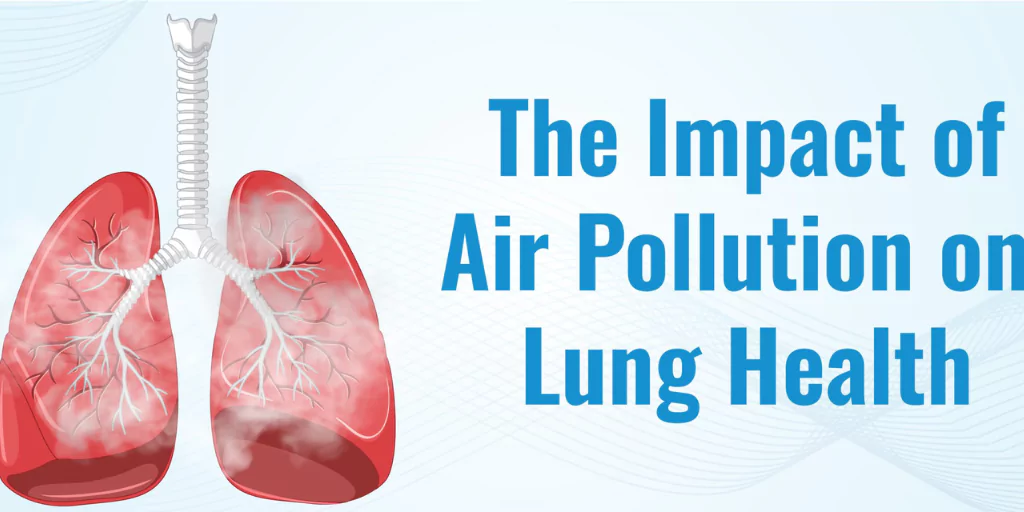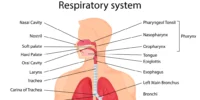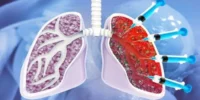Air is necessary for survival, yet the air we breathe is not always clean. Air pollution is now a global health hazard as a result of increased industrialisation, car emissions, and urbanisation. Polluted air primarily affects the lungs, as they are the primary organs of respiration. Air pollution causes substantial implications, ranging from short-term discomfort to long-term lung damage. Let’s examine how it affects your lungs and explore ways to protect them.
How Does Air Pollution Affect the Lungs
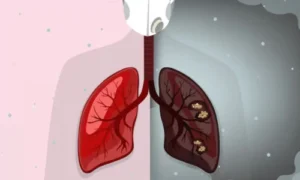
1. Airway irritation
- Pollutants such as dust, smoke, and chemicals irritate the nose, throat, and bronchi, causing coughs and wheezing.
2. Asthma and allergies
- Fine particulate pollution (PM2.5) and ground-level ozone aggravate asthma symptoms and may cause allergic responses.
3. Reduced lung function
- Long-term exposure can reduce lung capacity, making it difficult to breathe deeply.
4. Chronic Respiratory Diseases
- Continuous exposure raises the risk of Chronic Obstructive Pulmonary Disorder (COPD), bronchitis, and emphysema.
5. Lung Cancer Risk
- Certain air pollutants, such as diesel exhaust and industrial smoke, are considered carcinogens and can increase the risk of lung cancer.
6. Impact on Children and the Elderly
- Children’s developing lungs are particularly sensitive, which can lead to lifelong respiratory difficulties.
- Elderly: Poor air quality exacerbates pre-existing lung and cardiac diseases.
Types of Pollutants That Harm the Lungs
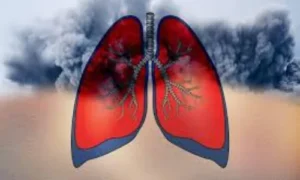
1. Particulate Matter (PM2.5 and PM10): Tiny particles that get deep into the lungs.
2. Nitrogen Dioxide (NO₂) from cars and power plants affects the lungs.
3. Ozone (O₃): Causes shortness of breath and aggravates asthma.
4. Carbon Monoxide (CO): Decreases oxygen flow to the body.
5. Sulfur Dioxide (SO₂) can cause asthma episodes and coughing.
What You Can Do to Protect Your Lungs:
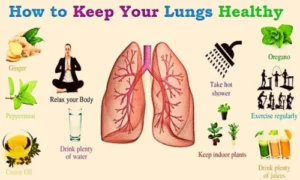
Personal Protection
- Wear N95 masks in locations with high pollution.
- Stay Indoors: Avoid outside activities when the air quality is poor.
- Air Purifiers: Use HEPA filters at home to improve indoor air quality.
Lifestyle changes
- Quit Smoking: Smoking exacerbates the damage caused by dirty air.
- Healthy Diet: To combat oxidative stress, consume antioxidant-rich foods (fruits, veggies, nuts).
- Breathing exercises such as yoga and deep breathing can help to increase lung capacity.
Environmental contribution
- Using public transportation or carpooling reduces emissions.
- Plants are natural air cleaners that increase oxygen levels.
- Support Clean Energy: Choose environmentally friendly items and renewable energy.
Conclusion
Air pollution poses a hidden but potent threat to lung health, producing both acute and long-term damage. While you cannot totally control outside air quality, you can take actions to protect your lungs, enhance interior air, and promote environmental change. A few lifestyle modifications, together with community actions, can significantly reduce the negative impact of dirty air on your health.
FAQs
Q1: Who is most affected by air pollution?
Children, elderly people, and those with asthma or chronic lung diseases.
Q2: Can air pollution cause permanent lung damage?
Yes, long-term exposure can lead to irreversible scarring and chronic diseases like COPD.
Q3: How can I know if the air quality is bad?
Check daily Air Quality Index (AQI) updates online or via apps.
Q4: Can diet really protect lungs from pollution damage?
Yes, foods rich in vitamins C, E, and omega-3 fatty acids help reduce inflammation and improve lung function.
Q5: Does indoor air get polluted, too?
Yes, cooking smoke, dust, and chemicals can pollute indoor air—ventilation and purifiers help reduce it.


